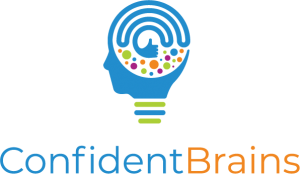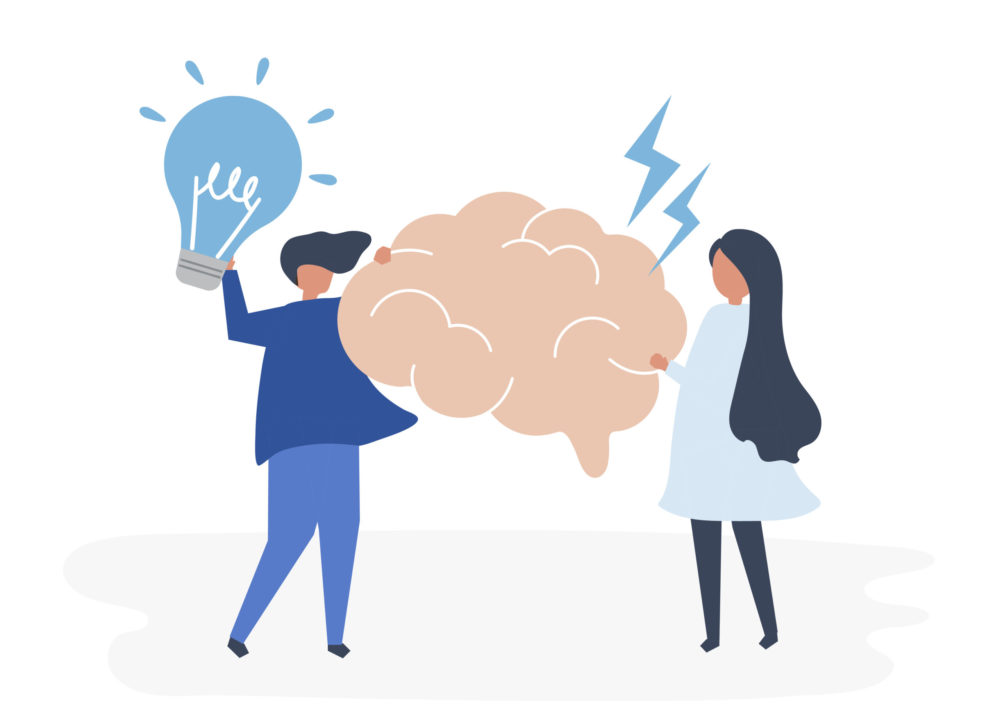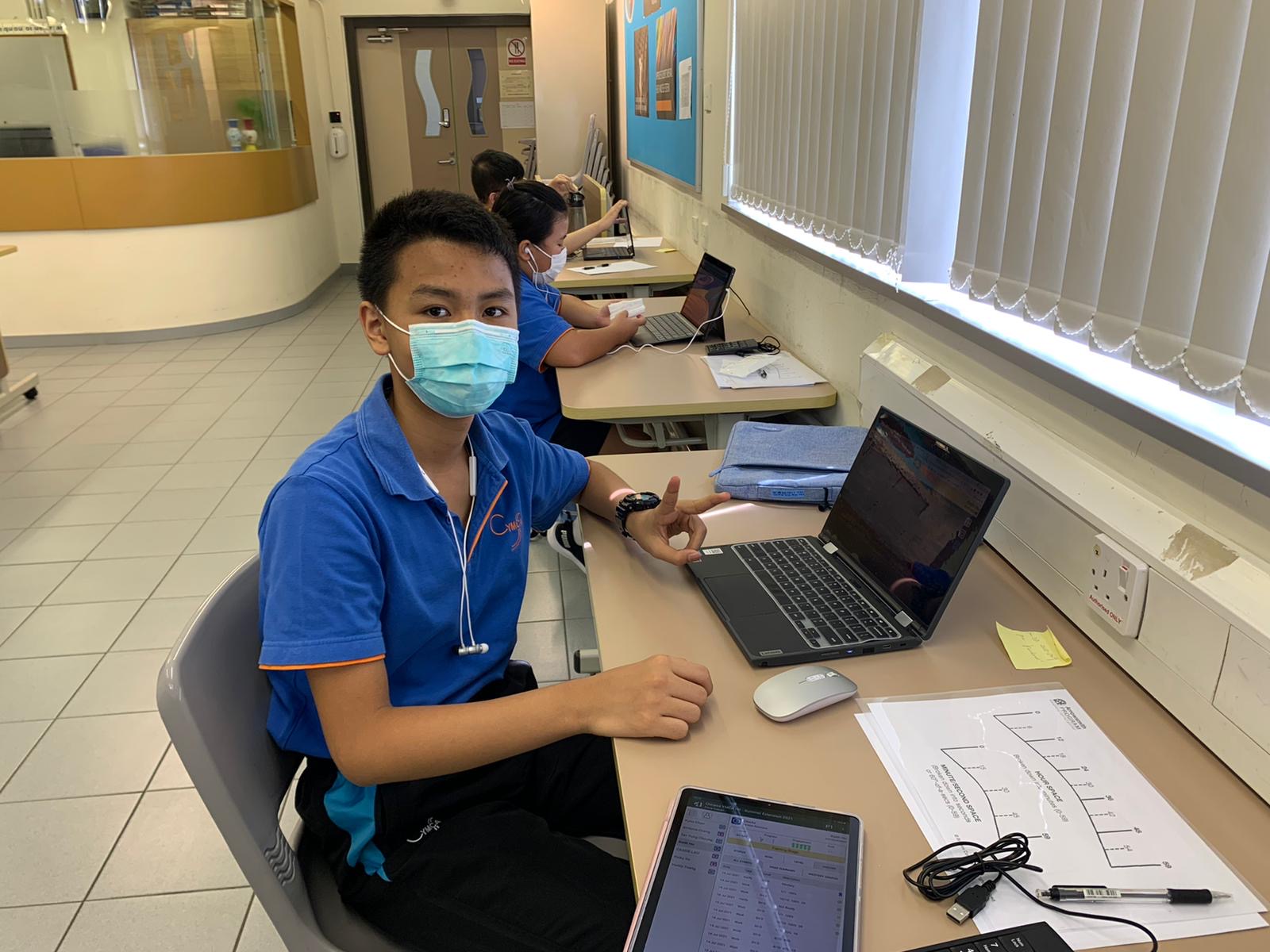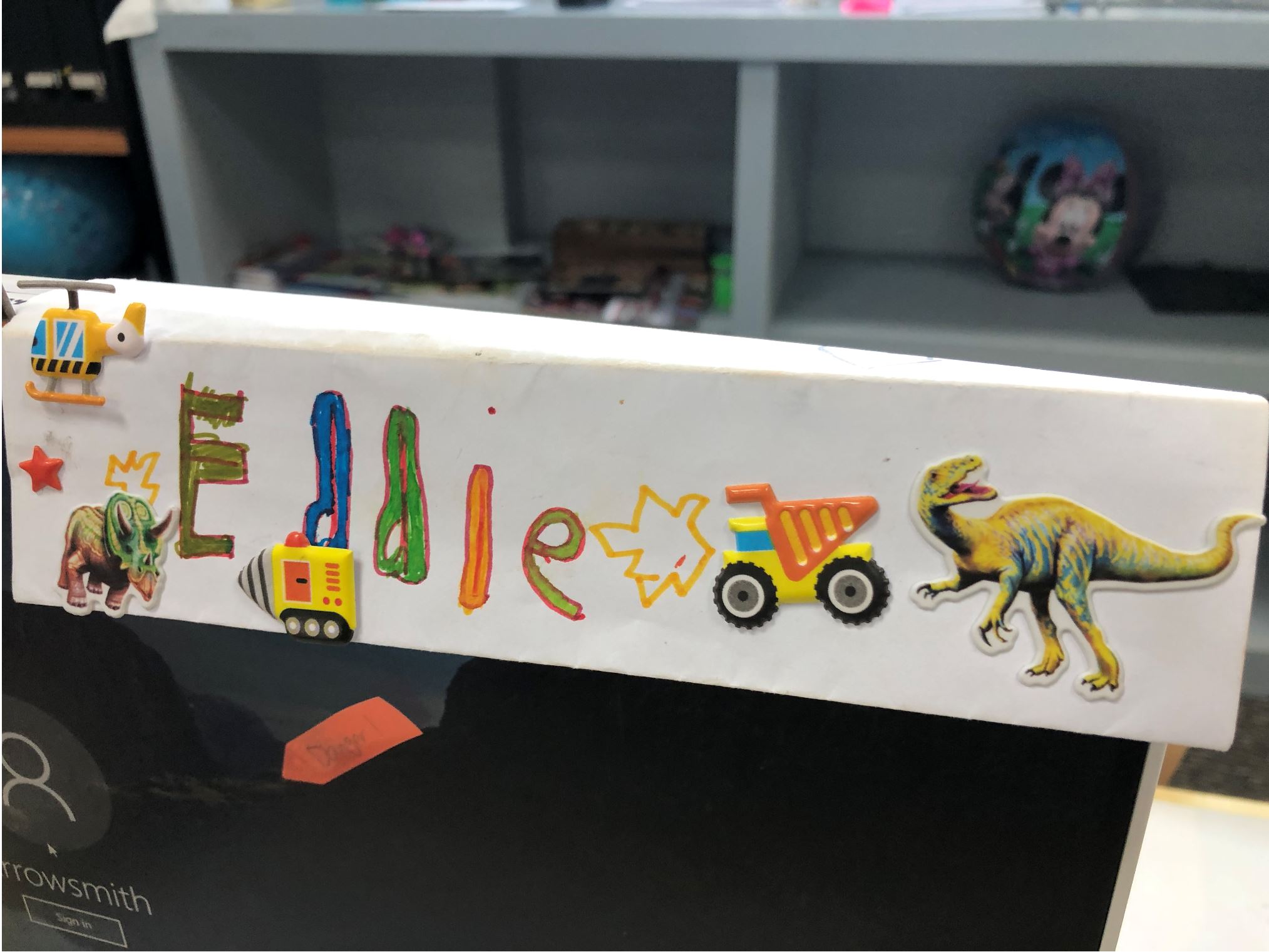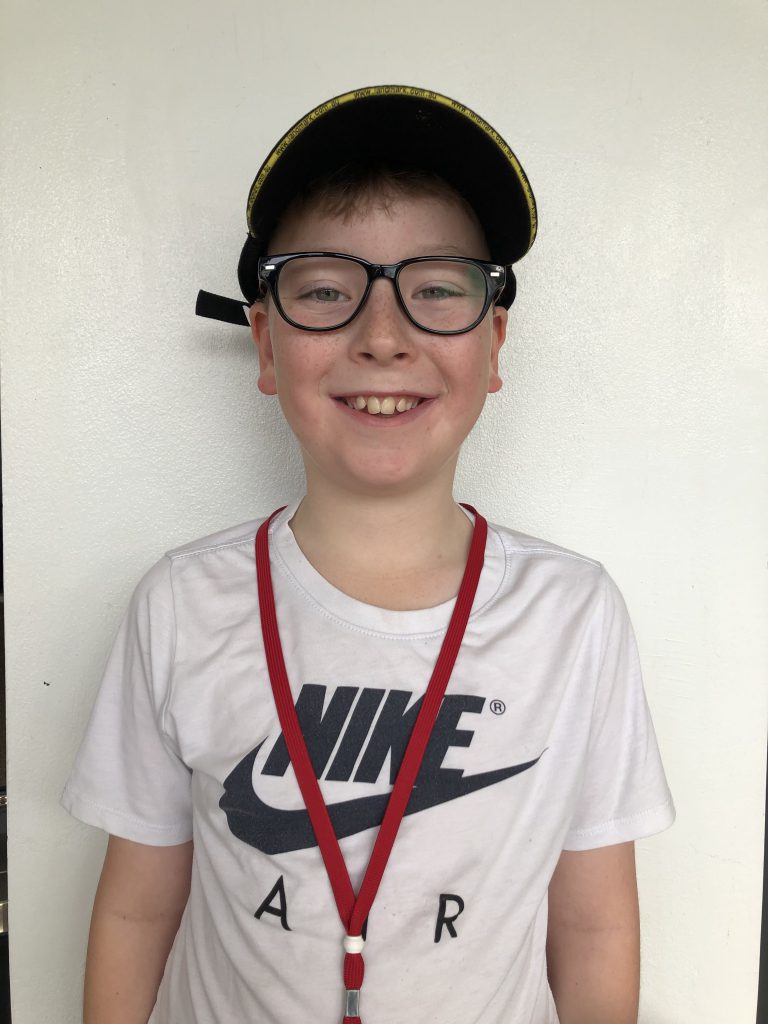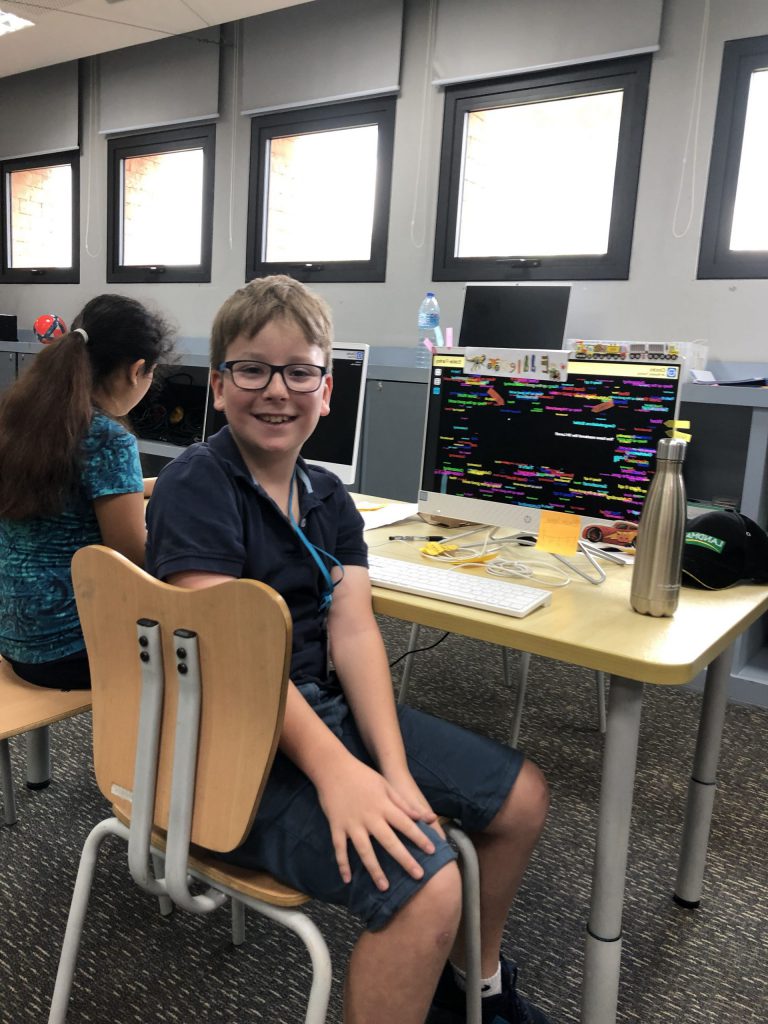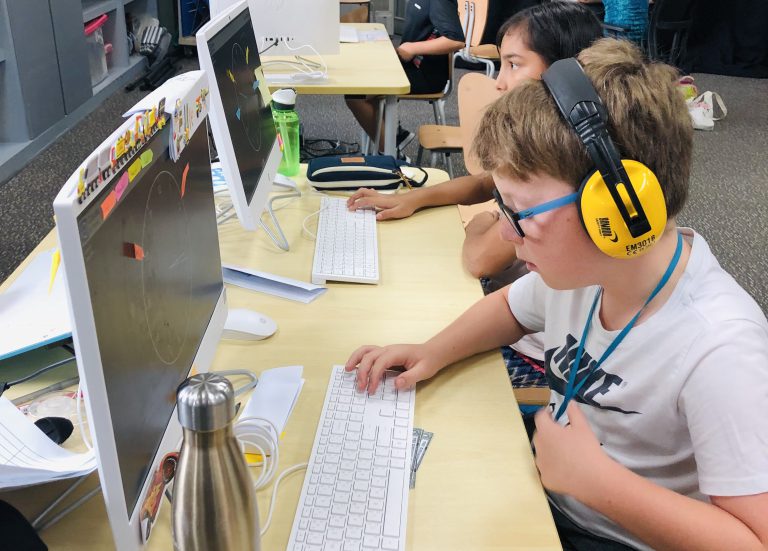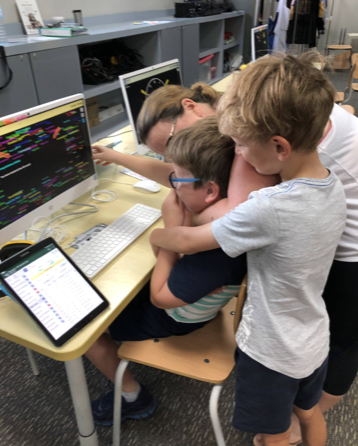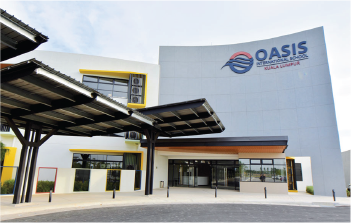It’s taken longer to see changes in Eddie’s writing, which was illegible to everyone, including Eddie. “He’d write in one continuous stream as the ideas came into his head,” said Michele. “He’d get halfway on one word and start writing the next word so there was no possible way anybody could make sense.” Michele is noticeably relieved when she explains that now, “While it’s not textbook perfect, it’s now clear, the right size, and it just looks like writing! We can all read it!” Eddie’s also remembering spelling words and spelling rules. He doesn’t fight homework anymore. “What parent doesn’t love that?” she exclaims.
While the whole family was excited about these changes, they were also aware that Motor Symbol Sequencing was only one of the many Arrowsmith exercises that could help Eddie. They had been looking at finding a way to go to Canada for the intensive program when they heard about the opening of the Phuket Campus in Thailand, much closer to home. Once again, Eddie’s parents didn’t hesitate; they signed him up for the 2019 Brain Training Summer Camp, which focused on Symbol Relations, and planned a family vacation. Eddie was excited but nervous. From doing the remote program, he knew it was going to be hard work. Students are in the class six hours a day, five days a week.
The instructors told Michele she would probably see changes in Eddie halfway through the program. “They were right,” says Michele, with a smile on her face. She recounts how Eddie’s reading transformed. “Before, Ed would just read, he wouldn’t really enjoy the story that much.” During the camp, that shifted dramatically. “He’d start giggling through the page, and he’d go, ‘Mum, stop I just want to tell you about this part of the story’ and there’d be a funny joke or there would be something amusing and he’d want to share it with us. To hear my child really comprehending and enjoying the reading process was really really special. And then the last three weeks he just read a book nearly every night.”
Michele also noticed Eddie having much more mature conversations with the family, and navigating complex restaurant menus that would have stumped him before. One night at a restaurant, they saw another camp student and his mom. “Normally, I would talk to his friends for him and he would just stand there beside me. I would have to say, Eddie, there’s so and so, make sure you look them in the eye, say hello, maybe you could ask them about so and so…” This time, without prompting, Eddie stopped and said, “Hey, your spaghetti looks really nice. Have a nice evening tonight.” As they walked out of the restaurant, Eddie looked at Michele and said, “MOM, that’s clocks!” Michele was floored. “He was totally aware that he had a whole new ability to relate to somebody. He would have never done that before. That was just amazing. And if you want nothing else for your children, the ability to be able to communicate and have relationships – that’s the only thing that matters.”
But on his last day of camp, all that mattered for Eddie was mastering another level of Symbol Relations. After Michele said goodbye for the morning he went into overdrive. With literally minutes left to spare, he completed 5 sets of his work within mastery criteria and shot up out of his chair, arms raised in joy. As he lined up to leave the classroom for lunch, Eddie was so excited he was shaking. When Michele and his brother came into view, Eddie ran towards them, shouting out that he had mastered. They met in a teary, happy group hug. “That just shows, not only does this change areas of their brain, but it teaches them so many skills – persistence, determination – that are so important for everybody. That feeling of empowerment and achievement was nearly as good as the brain training.”
